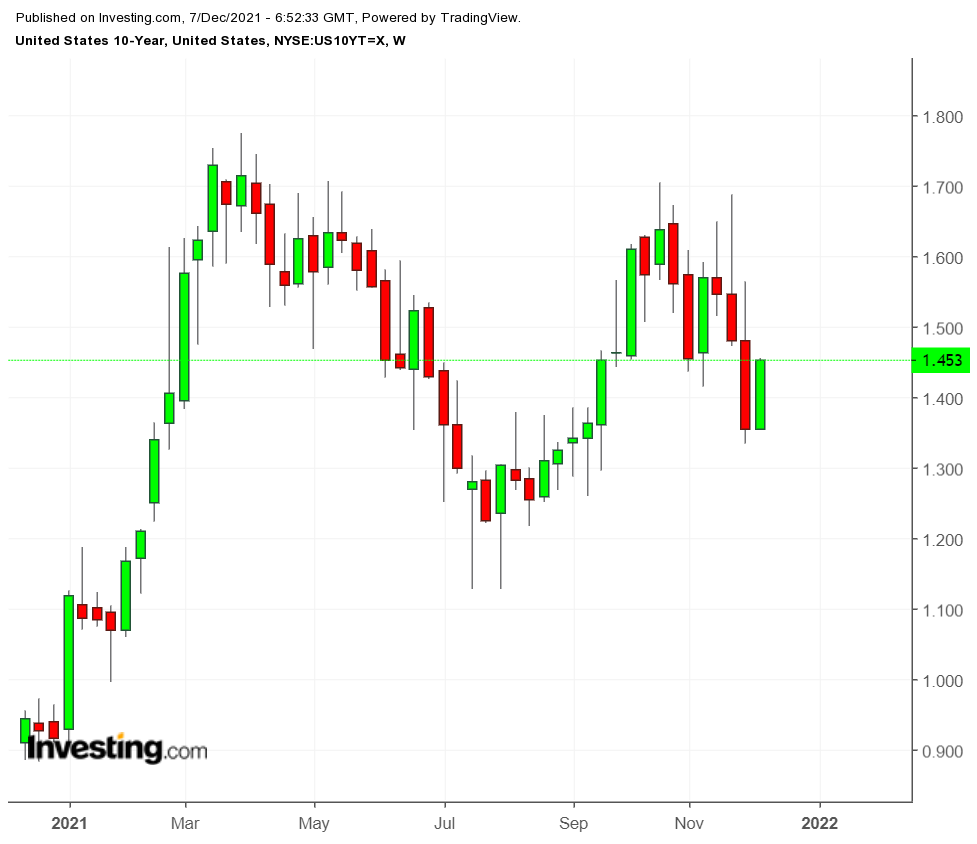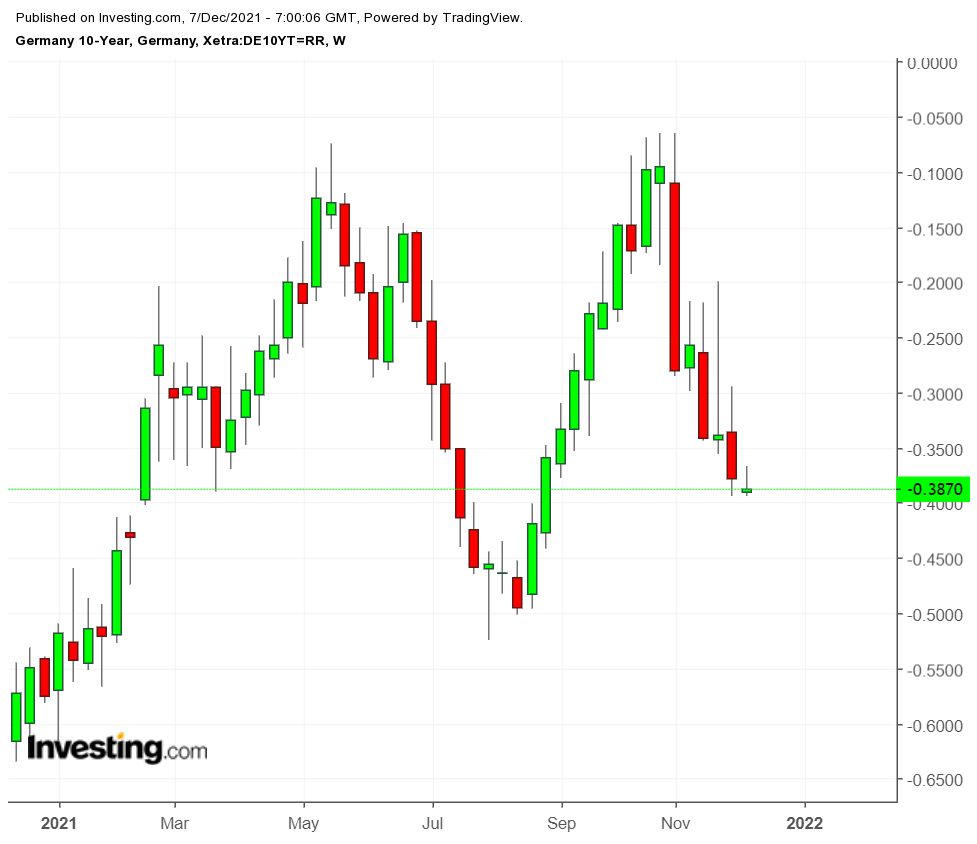Analysts scrutinizing historical trends are befuddled by a market that reflects a situation with no precedent. We have a pandemic that won’t end and a Federal Reserve that is dragging its feet on tightening monetary policy even as inflation surges.

Yields on the 10-year Treasury note remain stubbornly below 1.5%, even as fears about the Omicron variant of COVID-19 subside with reports of mild symptoms. A big part of the problem, of course, is that the Fed has hardly slackened its bond purchases. It continues to buy billions every month and will inflate its balance sheet to $9 trillion at its current pace.
Not to be forgotten is that even if the Fed stops buying additional bonds, it is reinvesting proceeds from maturing bonds. Given the elevated levels of its holdings, this means the Fed continues to absorb much of the Treasury market.
Fed Chairman Jerome Powell has indicated the Federal Open Market Committee will probably accelerate its taper when it meets next week, leaving the door open for rate hikes if needed to halt increases in inflation.
But there seems to be little sense of urgency, even though critics have excoriated the Fed for waiting too long in the mistaken belief that rising inflation is temporary.
US Debt Ceiling Deadline, EU Political Uncertainty
The prospect of Congress failing to meet deadlines for an ambitious agenda that requires an increase in the debt ceiling, approval of a defense budget, and hammering out a compromise on social spending legislation—all before Christmas—is not helping investor sentiment.
Some issues, like the debt ceiling, appear to be artificial constructs for lawmakers to play their games, but when they reach a critical mass under deadline pressure, investors have to take notice. Even the continuing resolution to keep the government funded is a stopgap measure that must be rehashed in the new year.
President Joseph Biden’s plunge in the polls adds to the political uncertainty. The Five Thirty Eight average poll approval for the President is at 42.8%, while disapproval is 50.8%. Individual polls show an even lower approval rate and wider gap. This won’t make it easier for the White House to get its legislation passed.
Meanwhile, Europe is in the midst of a political transition. A new German government will take office this week and the country will get a new chancellor for the first time in 16 years. If Angela Merkel was decidedly centrist, Olaf Scholz, the incoming chancellor, has formed a cabinet that tilts to the left.

Yield on the 10-year German bond is hovering at a low level of minus 0.38% as Europe struggles with surging COVID infections and debates new restrictions.
In France, Europe’s second biggest economy, far-right broadcaster Eric Zemmour has entered the race for president and may get into the runoff round with incumbent Emmanuel Macron, displacing the perennial far-right winner Marine Le Pen. The more moderate center-right Gaullist party, the Republicans, hope to recapture past glory and have nominated the popular head of the Paris region, Valérie Pécresse, for the presidential election in the spring.
Italian government bonds benefited from a ratings upgrade by Fitch on some of its long-term debt, but yield on the 10-year bond declined just 4 basis points to 0.88%.
Italy’s parliament will elect a new president next month to succeed Sergio Mattarella and Prime Minister Mario Draghi is an obvious choice, but many would prefer that he stay in his current post as the former head of the European Central Bank restores confidence in the country. There are no clear alternatives and even former prime minister Silvio Berlusconi is one of the people with a shot at the presidency.
Weak leadership at European Union institutions is bringing national politics to the fore. The European Commission flounders along in a feud with Poland over judicial reforms even as Belarus tests the EU by massing Middle Eastern migrants on the Polish border. The European Central Bank is also coming under criticism for not communicating its intentions clearly.
